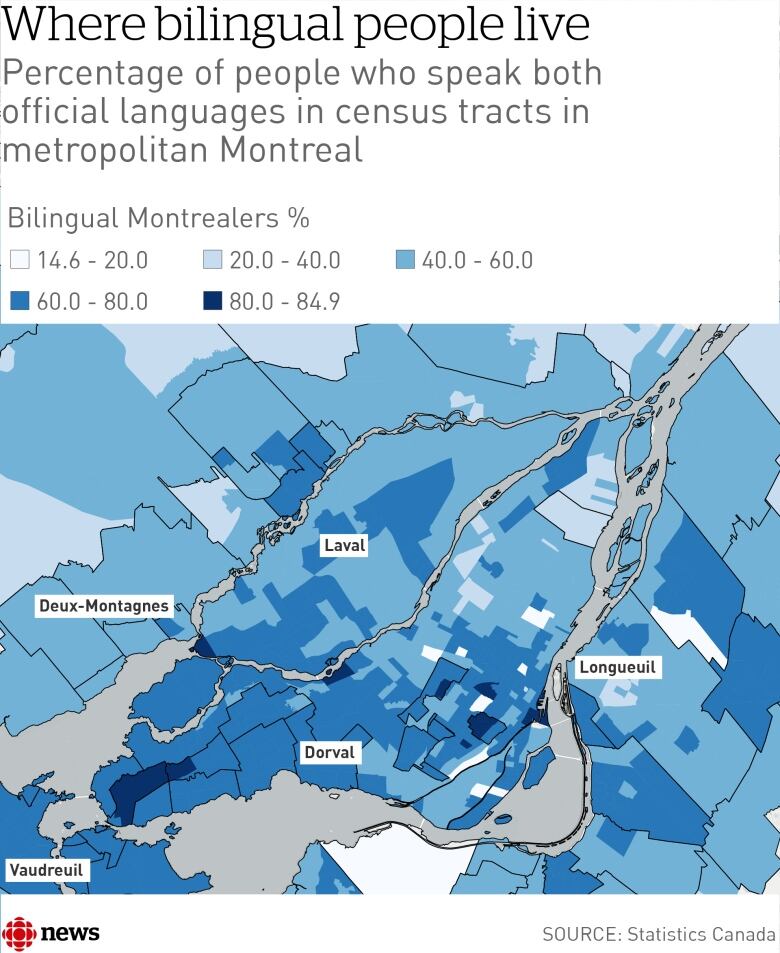Quebec driving increase in Canada's bilingualism rate, census figures show
45% of Quebecers declared they speak both official languages in 2016

More people in Canada are bilingual than ever before, and Quebec is driving that trend.
New census numbers for language in Canada showbilingualismis at an all-time high, at18 per cent nationwide.
In Quebec, 45 per cent of people declared that they speak both official languages in 2016, up from 42.5 per cent in 2011. Most of the growth came from native French speakers.
In the rest of Canada, the bilingual rate is a mere 10 per cent, but it's growing. More people across the country are speaking both official languages.
"In the past, it was Quebec and francophone minorities who drove bilingualism in Canada," said milie Lavoie, a demographer for Statistics Canada. "But for the first time, other language groups are also contributing to it."

French down, English up
The proportion of native French speakers in Quebec has gone down slightly, from 79.7 per cent of the population to 78.4 per cent. The share of people who speak French at home has also dropped.
However, knowledge of French in Quebec hasn't changed.
"The ability to have a conversation in French has remained stable," Lavoie said.
On the other hand, native English speakers edged up a tiny bit, from 9 to 9.6 per cent, likely due to immigration.
However, more Quebec allophones peoplewhose mother tongue is neither English nor French speak French at home (48 per cent) than English (22 per cent).
And more Anglos are also speaking French at home: 27.6 per cent. Among francophones, only 9.5 per cent reported speaking a language other than Frenchin the house.
Montreal's unique language mix
Asian languages are the biggest non-official tongues in most of Canada's big cities: Cantonese, Mandarin, Punjabi and Tagalog are most spoken in immigrant homes in Toronto and Vancouver.
But in Montreal, Arabic, Spanish, Italian and Creole dominate, reflecting in part the Quebec government's preference for immigrants from countries where French is also spoken. Mandarin comes a distant fifth.
Only a small proportion of metropolitan Montreal's population, 13 per cent, reported a non-official language as theirmother tongue. Compare that to Toronto, where 35.5 per cent of people speak a mother tongue other than English or French.
Quebecersmost likely to be solo
Quebec stands out from the rest of Canada with the highest proportion of people living all by themselves. A full third of the population live alone, compared to 28.2 percent nationwide.
Quebec also has the second-highest percentage of common-law couples, at 40 per cent, following Nunavut's 50.3 per cent. The Canadian average is 15.7 per cent.
And only 2 per cent of Quebec homes are multi-generational. That's the smallest share of all the provinces and territories of generations living under the same roof.












_(720p).jpg)


 OFFICIAL HD MUSIC VIDEO.jpg)
.jpg)



























































































